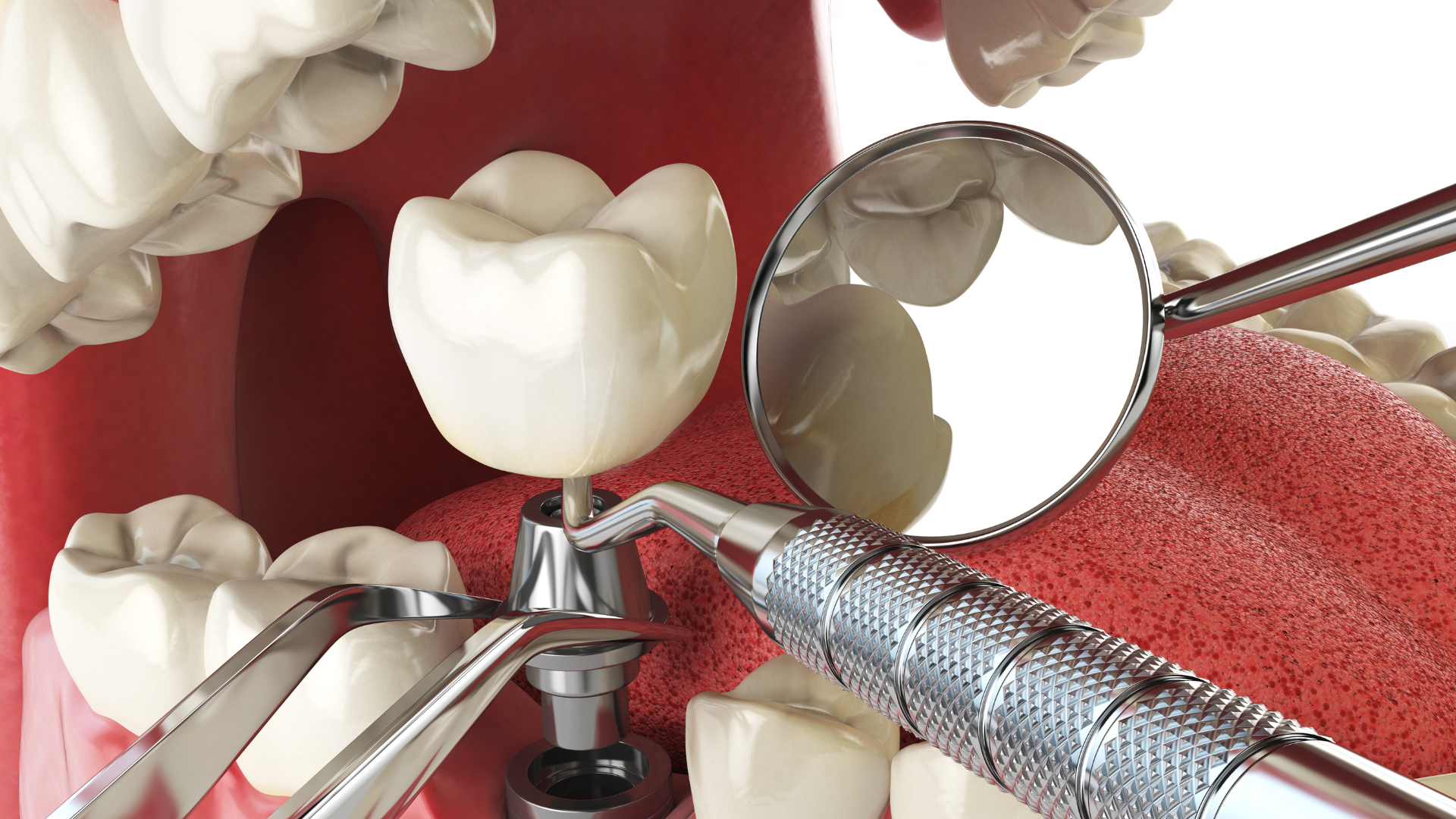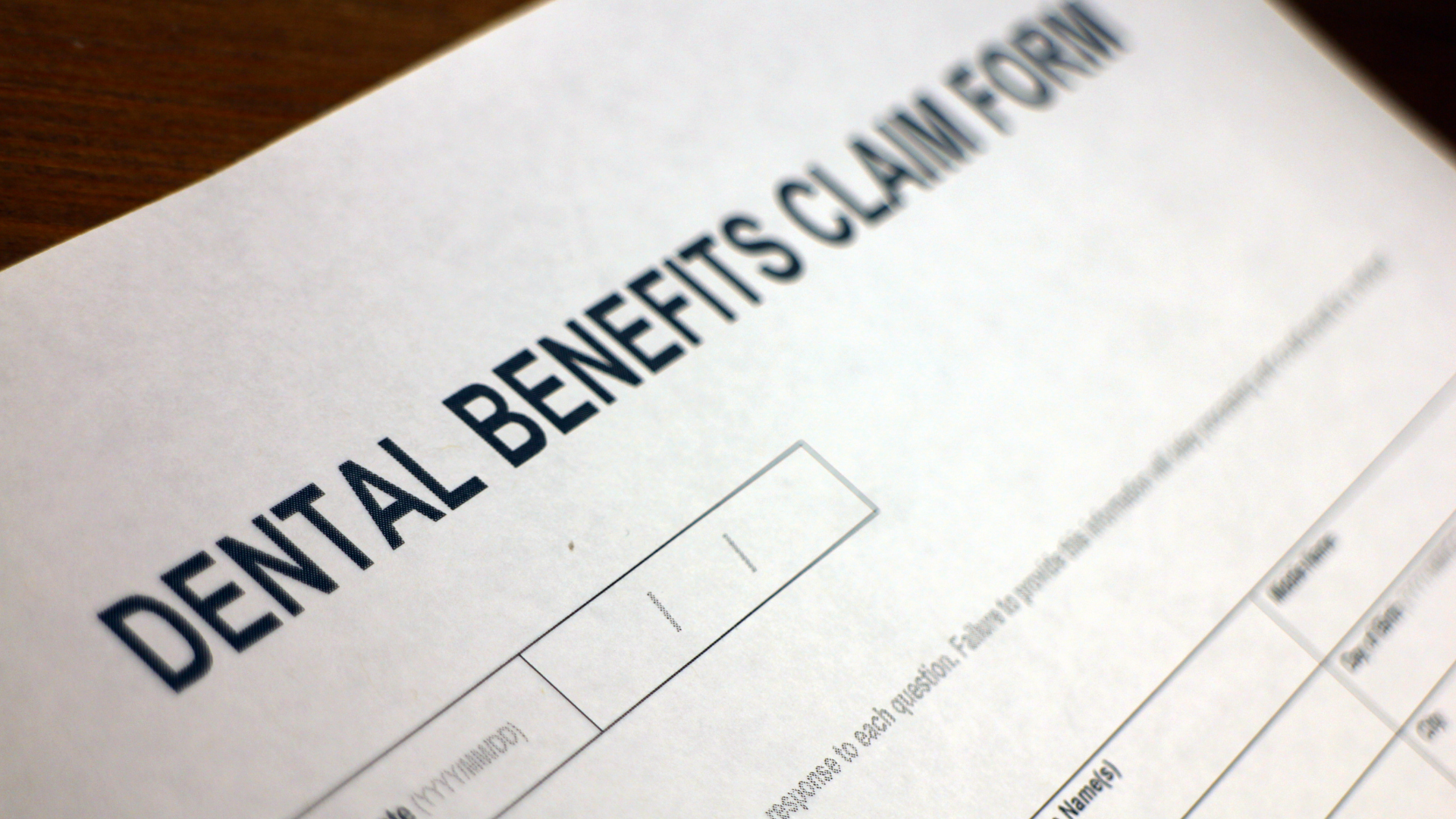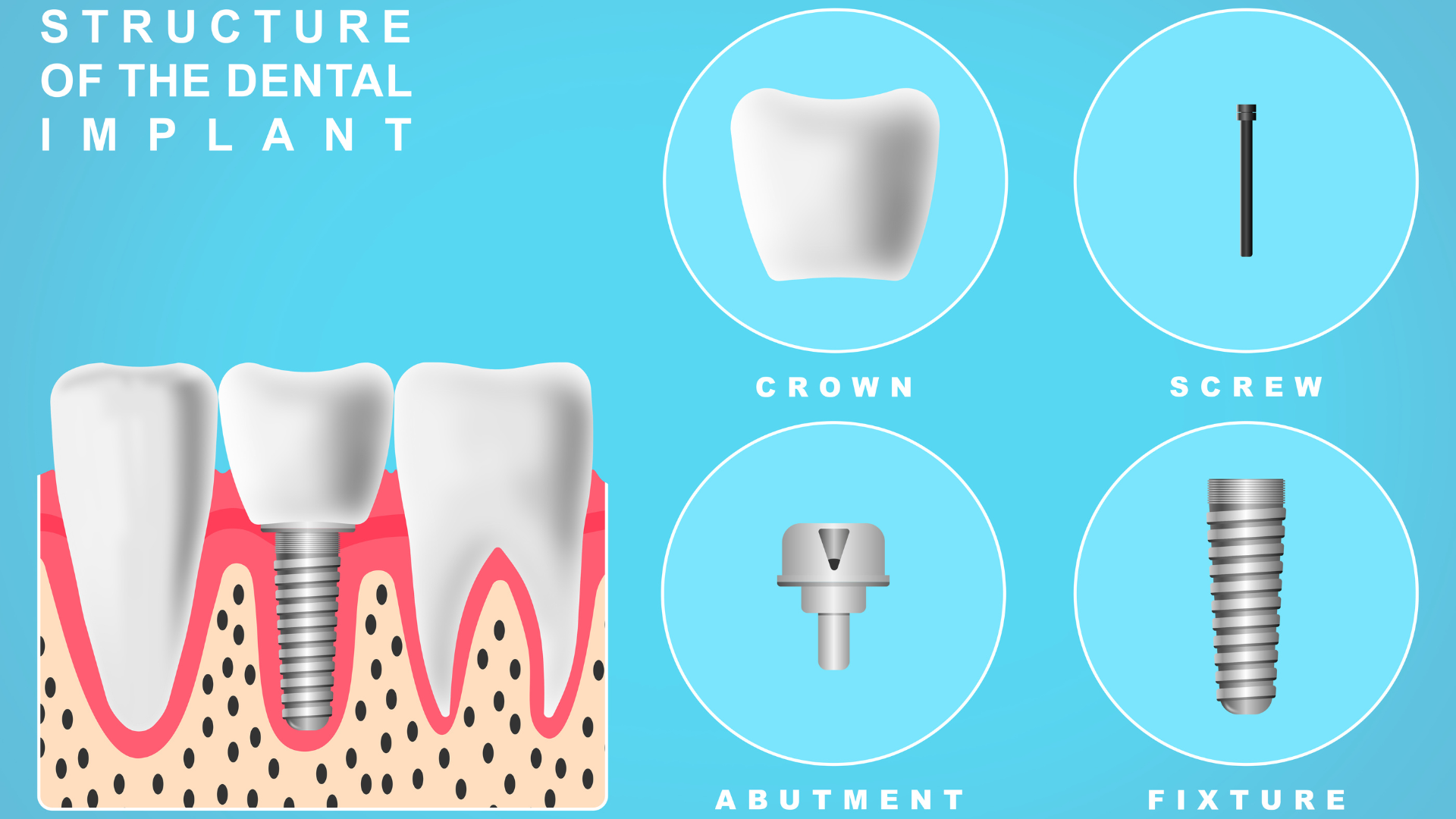Dental Implants In Midland, TX
THE BEST WAY TO RESTORE YOUR SMILE
If you’re missing one, several, or all your teeth, then you already know how difficult dealing with tooth loss can be. Eating the foods you enjoy, speaking clearly, and smiling with confidence all suddenly become hurdles that are difficult to overcome. While you have plenty of tooth replacement options to choose from, the best way to restore your smile is with dental implants in Midland, TX. With this unique treatment, Dr. Christensen and Dr. Drisdale can replace missing teeth with a prosthetic that mimics the entire structure of a tooth. Read on to learn more about dental implants and give us a call when you’re ready to schedule your consultation.
WHY CHOOSE JOHN K. DRISDALE D.M.D. FOR DENTAL IMPLANTS?
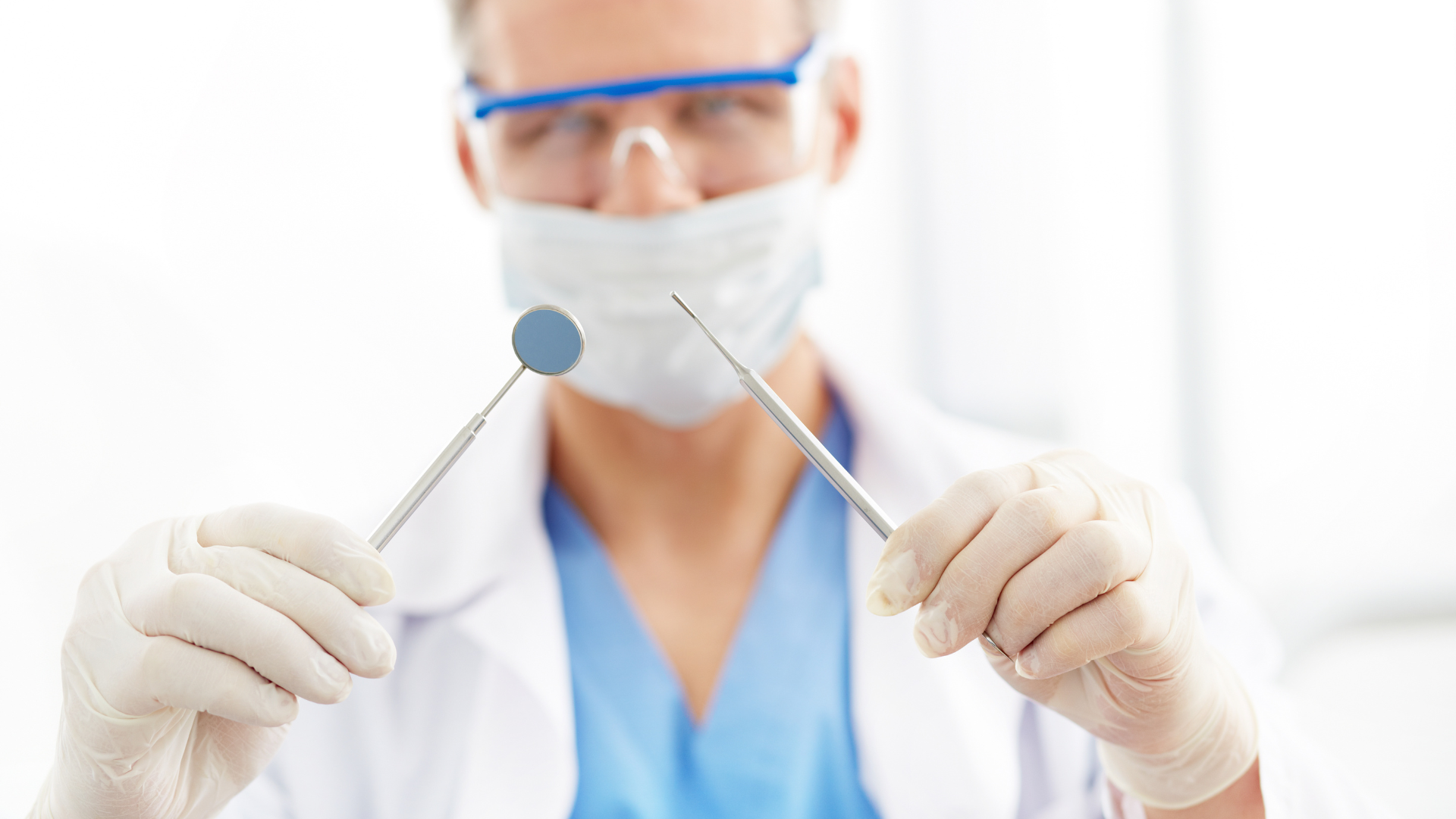
Team of Highly Trained & Experienced Dentists
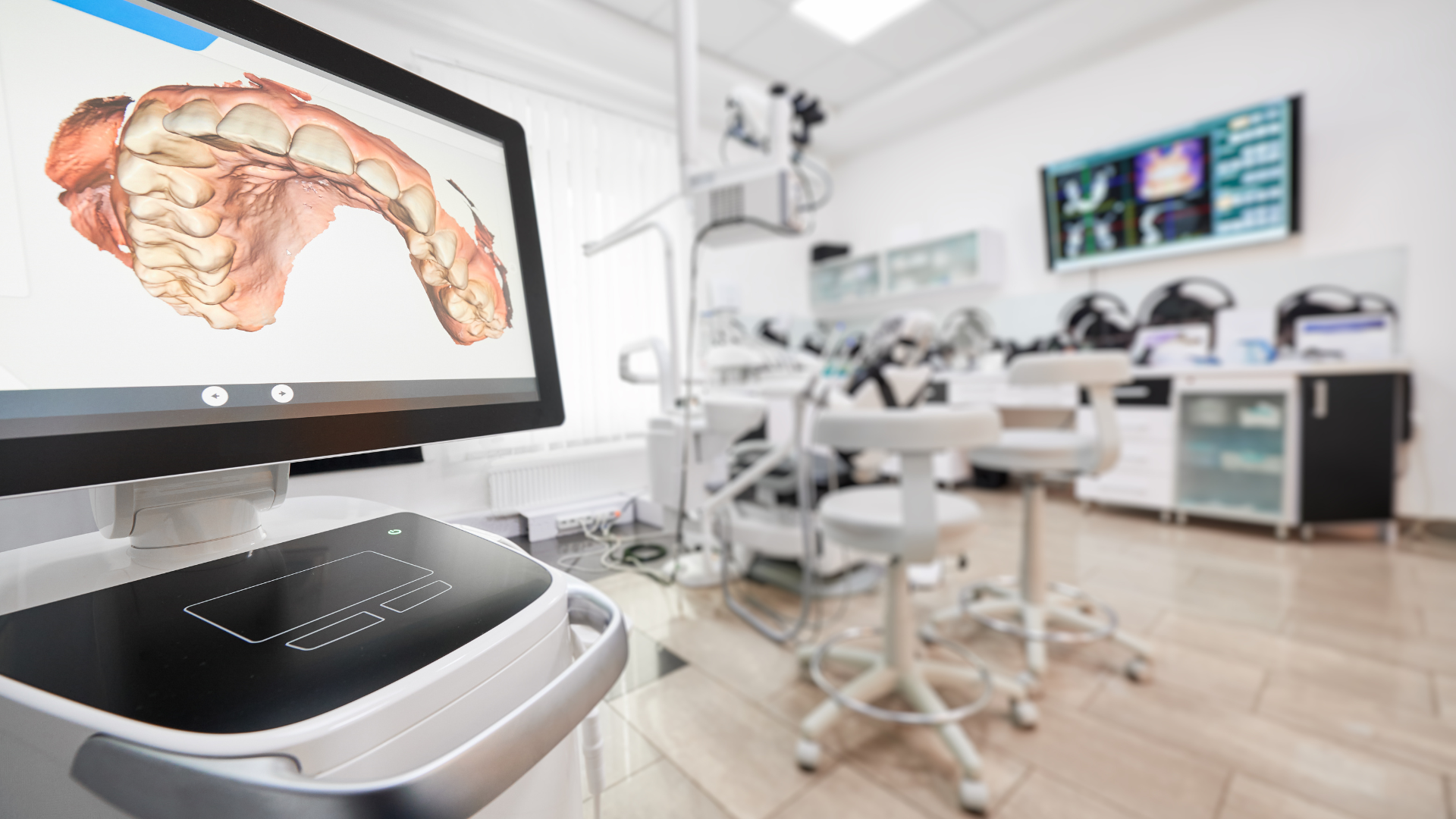
State-of-the-art Technology for Precise, Long-lasting Results
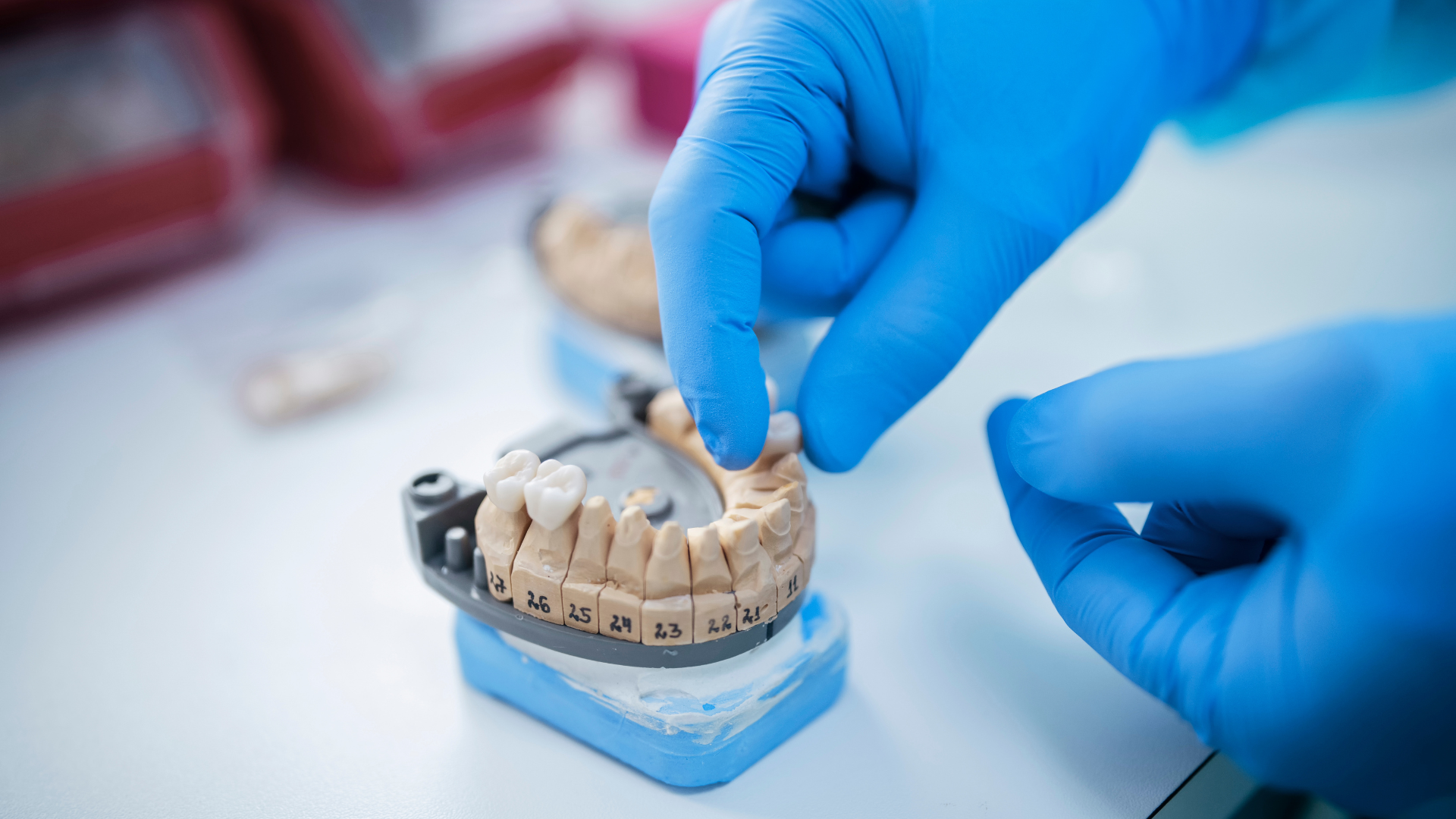
Can Replace Any Number of Missing Teeth
WHAT ARE DENTAL IMPLANTS?
Dental implants rebuild teeth from the roots up with three main parts: an implant post, abutment, and final restoration. The small titanium implant post is inserted directly into the jawbone to replace the roots of the
missing tooth. There, it will fuse with the surrounding bone tissue to form a strong and reliable foundation for the final restoration. This crown, bridge, or denture is securely fastened onto the implant post with a small connector piece called an abutment. We will create your restoration with impressions of your mouth and the highest quality materials, so your replacement teeth will be practically indistinguishable from the rest of your pearly whites. Dental implants can help you regain a smile that looks, feels, and functions like natural, which is why they’re considered the gold standard of tooth replacement.
Professional Cleaning
Your Professional Dental Hygienist
Dr. Drisdale will recommend professional cleaning a minimum of twice a year, to as many as 4 times a year, depending on your individual dental health care needs.

THE 4 STEP DENTAL IMPLANT PROCESS
Getting dental implants is a long, complex process, but the rewards of a healthier mouth and a full smile are absolutely worth it. At the beginning, we’ll plan the various steps and lay it all out for you so that you can be confident about the procedure as well as the expected timeline and estimated price. You can schedule your dental implant consultation with Dr. Drisdale today by calling our team. To learn the basics of what to expect, keep reading.
-
INITIAL DENTAL IMPLANT CONSULTATION
During a consultation, we’ll take X-rays and check the overall health of your mouth to make sure that dental implants are a viable option for you. Once we’ve confirmed that you’re a good candidate for the procedure, we can create your treatment plan. After that, you might be required to undergo some preparatory treatments. For example, we may need to remove a tooth, or you could need a bone graft to ensure that there’s enough tissue for a successful surgery.
-
DENTAL IMPLANT SURGERY
The implant placement procedure will be scheduled once all of the necessary preparations have been made. (You may be able to have the surgery done immediately following a bone graft, but this is not always the case.) The implant post is surgically positioned in the jawbone, and a protective cap is placed on it. This cap is meant to keep the implant post safe while the mouth heals around it, which is a process that can take several months to complete.
-
DENTAL IMPLANT OSSEOINTEGRATION/ABUTMENT
As you recover from the surgery, the bone in your jaw will slowly start to fuse with the titanium implant post. This gradual joining is called osseointegration, and it typically takes about three to six months, depending on how many posts needed to be placed. The next step after a successful integration is to place abutments. These small devices are what we’ll use to attach your prosthetic tooth or teeth to your implants.
-
DELIVERY OF DENTAL IMPLANT RESTORATIONS
You’ll return to our dental office for this final step. Any temporary restorations will be removed to make room for your new permanent teeth. Your crown, bridge, or dentures will be specially made so that they resemble real teeth so closely that most people won’t even realize that you’ve had dental work done.

Clinical Examination
Discover the Secrets of Your Smile's Health
An examination twice a year tracks your oral health care needs. Early diagnosis of any developing infection or disease by advanced screening and technology ensures early and effective treatment.
Bite Evaluation
Unlock Your Perfect Bite, Embrace Optimal Oral Harmony
A dental bite evaluation is a vital step in diagnosing malocclusion or incorrect bite alignment. It assesses how upper and lower teeth come together when you bite down. The procedure helps detect issues like underbite, overbite, or crossbite. By identifying these problems early, appropriate treatments can be applied, enhancing oral function and appearance.


Oral Cancer Screening
Oral Cancer Has Been on the Rise Over the Past Decade.
For this reason Dr. Drisdale screens for signs or symptoms during routine examinations.
BENEFITS OF DENTAL IMPLANTS
Our goal is to help all of our patients enjoy healthy and complete smiles -- but we know that most adults will lose at least one tooth throughout their lifetime. Fortunately, when tooth loss occurs, dental implants provide a wonderful replacement option. Dr. John Drisdale and our team can help you regain your complete, functioning smile with implant dentistry. To start your journey towards earning a complete smile, we welcome you to schedule a consultation today!
-
ENJOY A YOUTHFUL APPEARANCE
Tooth loss can take away from your appearance, as missing teeth cause the bone to deteriorate, resulting in a sunken, deflated-looking jaw. But because they replace the root structure of teeth, dental implants stimulate blood flow and bring important nutrients to the bone to preserve your youthful, attractive appearance.
-
BETTER STABILITY
Not all hope is lost after you lose one or more pearly whites. Once they have healed, dental implants are as stable as your natural teeth, so you won’t have to worry about a denture slipping or sliding around at the most inconvenient times, like when you’re speaking.
-
EAT A BALANCED, NUTRITIOUS DIET
Speaking of stability, dental implants stay in place while you eat all of the fresh, crunchy, and nutritious food items you love. People with dentures may have to make compromises based on what they can eat -- but with dental implants, you can continue to enjoy the food you need to feel great and thrive for life.
-
STRENGTHEN ORAL & OVERALL HEALTH
Dental implants replace the tooth’s missing root structure as well as its visible crown, which means once the process is complete, it’s like you never lost teeth at all. Because having a fully functional smile is critical for your oral health and overall wellbeing, dental implants improve your quality of life.
-
PRESERVE REMAINING NATURAL TEETH
Patients who have lost one tooth are at a much greater risk of losing those that remain, unless the missing piece is replaced by a dental implant.
-
EASY TO MAINTAIN
Because dental implants function nearly identically to your natural teeth, you can take care of them in the same way. Simply brush, floss, visit your dentist as recommended, and enjoy a sparkling smile without all the hassle.
-
ENJOY THEM FOR A LIFETIME
We saved the best for last! Perhaps the most significant benefit of dental implants is that, unlike other options in tooth replacement, they can stay stable and functioning properly for a lifetime with proper maintenance. That means you won’t have to periodically fork over hundreds of dollars for a replacement. Dental implants in Midland are a solution your smile and your wallet will love over the long-term.
WHO DENTAL IMPLANTS CAN HELP
Dental implants are appropriate for most people with missing teeth. If you are in general good health and you commit to maintaining excellent daily oral hygiene care, then dental implants could be right for you whether you are missing one or more teeth.
-
WHO IS A GOOD CANDIDATE FOR DENTAL IMPLANTS?
Patients should be in suitable oral and overall health in order to qualify for dental implants. The jawbone should be sturdy enough to support the proper anchoring of each implant post. Many times, a bone graft will need to be performed to create the proper environment for dental implants. Your implant dentist, Dr. Drisdale, will assess your overall health to determine whether or not you are a good candidate for this tooth replacement option. If you are, we look forward to getting started right away!
-
MISSING 1 TOOTH
If you are missing a single tooth, then you will likely only need a single post to support an implant-retained crown. The implant will be positioned in your jawbone beneath the open socket and in such a way that the most bone density is used to anchor the post.
-
MISSING MULTIPLE TEETH
For several missing teeth, two dental implants can support an implant-retained crown and bridge. The prosthetic is made of two dental crowns that attach to the implants and replacement teeth that fill the gap in your smile.
-
MISSING ALL TEETH
Patients who are in need of significant tooth replacement may benefit from selecting All-On-4 implant dentures as opposed to traditional dentures. This state-of-the-art procedure relies on a minimum of four precisely placed implants to create sturdy and confident results for patients. All-On-4 can be used in the upper or lower jaw, and the treatment is typically reserved for patients who have lost all of their teeth.
UNDERSTANDING THE COST OF DENTAL IMPLANTS
There is no fixed price for dental implant procedures, and the cost may vary widely from one treatment to the next. Dr. Drisdale can give you a good idea of what you should expect to pay for yours during a consultation. During this appointment, he will consider several factors to determine the approximate cost of your overall procedure, including how many teeth are being placed, where they are located, and more. Once we have a price, we can start thinking of ways to make dental implants fit comfortably within your budget. No matter the price of dental implants, they are well worth the investment!
-
HOW TO BUDGET FOR DENTAL IMPLANTS
The only way to know exactly how much your dental implant procedure will cost is to schedule an appointment with your implant dentist. There is no fixed price for implants. When you come in for a consultation, Dr. Drisdale will consider the following factors in order to determine the cost of treatment:
- Your jawbone health and density: Patients who have been missing teeth for a long time may require a bone graft procedure before they can get dental implants. This increases the volume of the bone to help the dental implants fuse together with the jaw.
- How many dental implants you require: Each implant is priced individually, so the number of teeth that you need to have replaced will greatly influence the cost of the procedure.
- What your dental implants are made of: Most implants are titanium, but patients who have allergies or sensitivities to metal may require a zirconia or ceramic post. This special type of implant costs more.
- Where in the mouth the implants will be placed: Because aesthetics are especially important for teeth in the front of the smile, implant procedures here are more complex and can cost more as a result.
-
MAKING A LIFELONG INVESTMENT WITH DENTAL IMPLANTS
No matter what the cost of your dental implants, patients who have had this comprehensive replacement know it is worth its weight in gold. Sturdy implant posts offer a wealth of benefits that you just can’t get with a fixed bridge or traditional denture. And because they stabilize the jawbone, dental implants can prevent the additional loss of bone in the future. An implant supported crown or bridge gives the patient increased chewing power and the look and feel of natural teeth. Implant-supported dentures can either be snapped on or screwed onto the implants and provide the patient with increased confidence when chewing and smiling.
-
WE’LL HELP YOU PLAN FOR DENTAL IMPLANTS
There is no one-size-fits-all cost of dental implants, but scheduling a consultation can give you a great idea of how much you should expect to pay for your procedure. We invite you to book a visit with your implant dentist in Midland today!
ADVANCED DENTAL IMPLANT PROCEDURES
Not everyone is an ideal candidate for dental implants. The posts need a strong jawbone to support them, but unfortunately many people end up struggling with bone loss after losing your natural teeth. But even if implants aren’t currently viable for your mouth, that doesn’t mean you have to give up on them. Thanks to a variety of advanced procedures, we can reverse bone loss and restore the level of bone density required for a successful dental implant treatment.
-
BONE GRAFTING
The roots of your teeth actively stimulate blood flow in the jaw, ensuring that the bone receives the nutrients it requires to stay healthy and strong. No teeth means that the jawbone will start to deteriorate. After a while, it will reach the point where it can no longer support dental implant posts. Bone grafting replenishes the tissue that was lost in order to strengthen the jaw. All we have to do is open the gums to access the parts of the jaw where bone loss has occurred and apply bone tissue taken from elsewhere in your body or a donor. It can take several months after bone grafting for your mouth to heal to the point that implant surgery can be performed.
-
SINUS LIFT
The upper jaw often offers its own unique challenges during implant surgery. In some cases, the sinus cavity might be located too close to the spot where the implants need to be inserted. This can make it difficult or impossible to place the posts without poking into the cavity. We can address this issue with a specialized bone graft called a sinus lift. After opening the gums, we push the thin membrane supporting the sinuses out of the way in order to place the necessary grafting material. Implants can normally be placed about four to nine months after this procedure.
-
PRP/PRF TREATMENT
Using platelet-rich fibrin (PRF) and platelet-rich plasma (PRP) helps speed up the recovery process after implant placement and other types of oral surgery. It’s highly recommended for patients who are at a particularly high risk for post-surgical infection; faster healing time means less of an opportunity for harmful bacteria to enter the body. This treatment also reduces the need for pain medication and anti-inflammatories after implant surgery; many dentists report a decrease in reported discomfort when PRP and PRF are used.
-
RIDGE EXPANSION
Is there not enough room in your jaw for the implant posts? A ridge expansion can help create the space required. The ridge bone will be divided into inner and outer segments that are carefully wedged apart. Then bone graft material is placed in the space between them. Once recovery is complete, implant surgery can proceed. There are certain situations where dental implants can be placed on the same day that ridge expansion is performed, but we’ll have to consider all of your options before we decide on this course of action.
DENTAL IMPLANT FREQUENTLY ASKED QUESTIONS
Dental implants are quickly becoming the most popular way to replace missing teeth. However, it’s natural to have some questions that need answering before you’re ready to commit to a treatment plan. After all, rebuilding your smile is a big decision! We want you to feel 100% confident in your decision to invest in dental implants, so we’ll be more than happy to answer all your questions during your consultation. In the meantime, we invite you to look over this list of common questions we get so you can learn more!
-
HOW DO DENTAL IMPLANTS COMPARE TO OTHER TOOTH LOSS SOLUTIONS?
Nothing else rebuilds your missing tooth from the root up. Other options in tooth replacement, like a traditional denture or bridge, only give you back your missing crown. The stability of a prosthetic root ensures that your smile stays sturdy and healthy for years to come.
-
DOES GETTING DENTAL IMPLANTS HURT?
No, not at all. Dr. Drisdale will administer a local anesthetic to the site, so you may feel some pressure when the implant is set in your jawbone. Most patients report that receiving a dental implant is no more difficult or uncomfortable than having a cavity filled.
-
HOW LONG DOES IT TAKE TO HEAL FROM DENTAL IMPLANT SURGERY?
The healing process depends on how many dental implants you’ve had. For one implant, healing usually takes between three to six months. If you have more than one, then healing takes a few months longer. While you’re recovering, the implant integrates with your jawbone through a process called osseointegration. Once this has happened, the implant is firmly anchored in place to provide a strong foundation for your dental restoration.
Discover Your Perfect Smile: Premier Dental Implants in Midland, TX
Obstructive Sleep Disorders
Awaken to Restful Nights, Breathe Easier with Our Sleep Apnea Solution
Dr. Drisdale plays an integral role in identifying potential obstructive sleep disorders like sleep apnea.
He assesses symptoms like snoring, frequent pauses in breathing during sleep, and daytime fatigue, usually noted during dental examinations.
Custom oral appliances may be recommended to maintain an open airway during sleep, improving overall health and reducing the risks associated with these conditions.


Diagnosis
After conducting a thorough dental examination, Dr. Drisdale carefully analyzes your oral health and identifies any potential issues. With clear communication and empathy, he delivers a diagnosis, explaining the findings and their implications.
At this point Dr. Drisdale discusses the recommended treatment.
Treatment Planning
Once you have the diagnosis, based on your dental examination, you can proceed with treatment planning. Dr. Drisdale carefully considers your oral health conditions, taking into account the diagnosed issues and their severity. Using his expertise, he formulates a comprehensive treatment plan tailored to your needs.
The plan outlines the necessary procedures, timelines, and potential alternatives, aiming to restore and improve your oral health effectively.
This is a great time to discuss the treatment plan with you, ensuring you understand the proposed interventions and ask any questions you may have.


